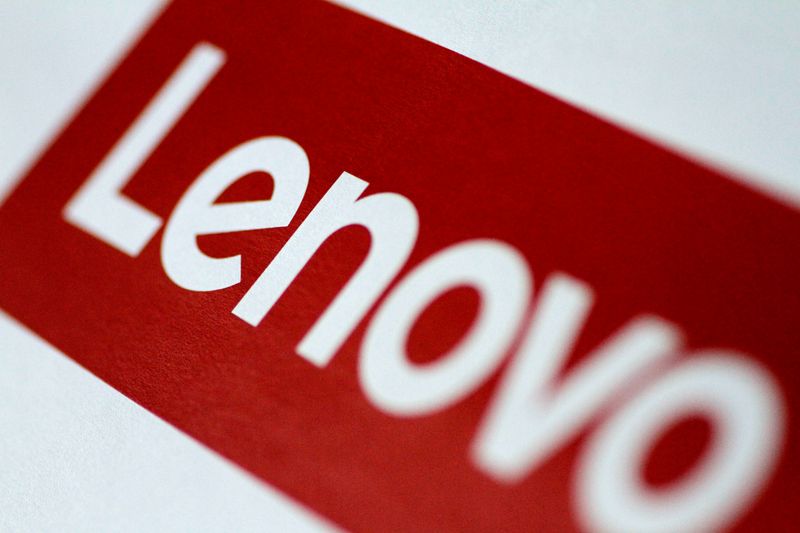(Corrects headline and first paragraph to show revenue growth was the slowest in nine quarters, not eight quarters. Drops redundant word in second paragraph)
By Josh Ye
HONG KONG (Reuters) - Lenovo Group (OTC:LNVGY), the world's biggest maker of personal computers, reported flat revenue for the April to June quarter when many Chinese cities were hit by COVID-19 lockdowns, marking its most subdued result in nine quarters.
Total revenue during the period was $16.96 billion, up 0.2% from the same quarter a year ago though it was in line with an average Refinitiv estimate of $16.87 billion drawn from seven analysts. That was the smallest increase since the period ending in March 2020.
However, Lenovo has made big strides in expanding into other higher-margin businesses such as server operation, information technology services and mobile devices, with Lenovo's non-PC business now accounting for 37% of the company's revenue. For the quarter, net income attributable to shareholders rose 11% to $516 million.
Yang Yuanqing, Lenovo's chairman and chief executive, said the company is "diversifying from a pure PC business to a company that offers a broad range of intelligent products and solutions."
Lockdowns in China during the quarter dealt a blow to the PC supply chain, with major laptop manufacturing partners including Quanta, Compal and Wistron suffering significant manufacturing disruptions, according to a report by research firm Counterpoint. It also coincided with the global PC industry coming off the pandemic-fuelled sales boom and the war in Ukraine, prompting several companies from chipmakers to electronics manufacturers such as Intel (NASDAQ:INTC) and Samsung (KS:005930) to warn of a sharp slowdown in demand.
Global shipments fell 11.1% in the past quarter from a year earlier, the largest year-over-year decline since the second quarter of 2013, according to Counterpoint. Counterpoint said Lenovo’s total PC shipments fell 12.7% to 17.4 million units largely due to weak consumer demand. However, Lenovo maintained its leadership in the global PC market with a 24.4% share.
Yang said that he expects this year's global PC shipments to be between 300 million units and 310 million units. That would be a near 10% dip from the figure of 341 million units shipped last year reported by data firm Canalys.
But Yang said that supply chain shortages, which plagued many hardware manufacturers earlier this year, have improved.
"In some areas we are still facing a shortage, particularly in the data center business," he said, "But generally speaking, I'm not seeing significant challenges in the second half of this year."
He also added that Lenovo has seen some price increases in the semiconductor industry but the company would remain flexible in dealing with price fluctuations around components.
Lenovo declined to comment on sales in Russia and the impact the war in Ukraine has had on its business during the quarter.
Chinese media reported last month that Lenovo has listed job posts to hire autonomous driving engineers. Yang declined to comment the company's foray into the mobility business.

Lenovo's shares on the Hong Kong Stock Exchange were down 0.3% at HK$7.03 ($0.8956) while the broader Hang Seng was down 1.9%.
($1 = 7.8496 Hong Kong dollars)